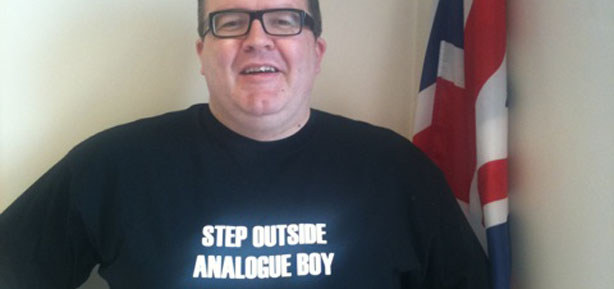
Digital Politics – The Tom Watson Interview
While the current working generation are tapping out status updates on smartphones, downloading MP3s and immersing themselves in the latest computer games, the culture of politics often seems curiously detached from the digital world, like an Amish community that's somehow managed to isolate itself in the middle of London. Former prime minister Tony Blair didn't get his first email address and first mobile phone until 2006. Meanwhile, the Digital Economy Act is starting to make the UK's digital policy look more like China's than that of a supposedly progressive and tech-savvy nation.Thankfully, not every member of parliament is a Luddite, and one such example is the Labour MP for West Bromwich East, Tom Watson. A former parliamentary secretary, and a regular user of Internet social media, Watson publicly protested against the Digital Economy Act outside parliament, and also set up the Gamers' Voice campaign group in an attempt to challenge negative, ill-informed perceptions of gamers in the media and politics. Is the culture of Westminster really so stuck in the past? How has the Digital Economy Act managed to get so far? We caught up with Watson to discuss the current state of digital politics in the UK.
Bit-tech: You voted against the Digital Economy Act and wrote an open letter to the Financial Times about it, but it's still going ahead despite a massive public backlash. How has this bill managed to get so far?
Tom Watson: It's through and it's law now, but at no point did it receive adequate scrutiny in parliament. It was banged through in the last few days of the last parliament, after the general election being called - I think I called it a constitutional abomination at the time. There was absolutely no way that elected MPs could have properly scrutinised the bill. It went through, it was quite flawed in my view and the principles that lay behind the bill were not tested in a committee.
Fast forward a year, and there are now secondary powers within the bill that until today (16 June) I thought might not be enacted. There's been a court case that BT brought. However, in the chamber today Jeremy Hunt and Ed Vaizey said that they intend to move to a position to enact these secondary powers, which essentially means they can start the process of beginning to restrict people's access to the Net if they've been found to have infringed people's copyright. So it's not very good.
BT: Is there any hope of stopping the Digital Economy Act?
TW: I fear the worst, to be honest, but that doesn't mean that everyone shouldn't try their best to try to stop the enactment of some of the secondary legislation in the act. The most important thing you can do is join the Open Rights Group, which is the platform for people campaigning for digital rights. It's got members from the law, media and politics, as well as consumers and people who just care about these things. The more powerful their force, the more chance they've got of influencing politicians.
 Want to oppose the Digital Economy Act? Watson advises to contact your MP and join the Open Rights Group
Want to oppose the Digital Economy Act? Watson advises to contact your MP and join the Open Rights GroupI would definitely also advise you to touch base with your MP. The amazing thing about being in parliament is that we had a very big turnover of MPs at the last general election. There are newer, more tech-savvy members who are aware of some of the key issues to do with net politics and the digital economy in general. They're more receptive to more progressive views, I would say, on both sides of the house.
We've now got people like Dr Stella Creasy – she's a young Labour member of parliament, she consults online using different social media forums all the time, she campaigns online. As a kind of veteran, it's gratifying for me to see that she's one of a number of MPs who are regular users of social media, and they're fomenting change, I would say.

MSI MPG Velox 100R Chassis Review
October 14 2021 | 15:04









Want to comment? Please log in.